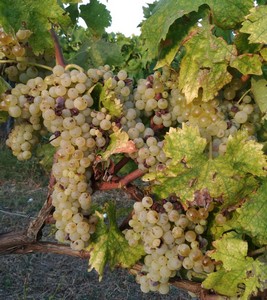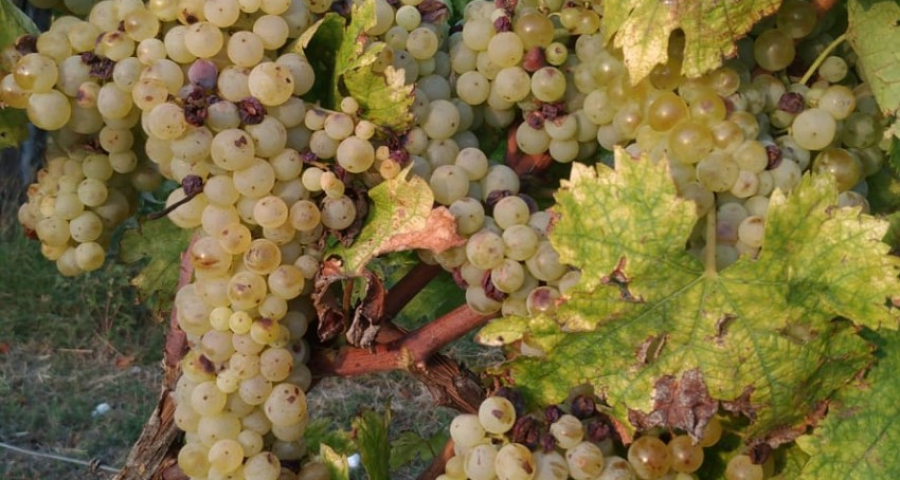Surpluses and misalignments/3 - You may leave as a son and return as a father and mother
by Luigino Bruni
published in Avvenire on 16/09/2018
 He had the docility of wood. He was no longer a walking tree, as the blind man of Bethsaida had revealed to him, now he was planted in the ground and all his steps taken ended there with his feet joined and arms wide open like branches. Golgotha is a skinned hill, without vegetation. On its top now a man-tree sprang, grafted in blood.
He had the docility of wood. He was no longer a walking tree, as the blind man of Bethsaida had revealed to him, now he was planted in the ground and all his steps taken ended there with his feet joined and arms wide open like branches. Golgotha is a skinned hill, without vegetation. On its top now a man-tree sprang, grafted in blood.
Erri De Luca, Indagine su un falegname (“A Study on a Carpenter”; rough translation)
Throughout their existence, people develop many more dimensions than those useful to the community in which they live and grow. Because the "task" we have to perform in the world always exceeds the institutional mission of our organization or community, which remains smaller, however great and extraordinary it may be. No institution is bigger than a single person, because while the collective intelligence of a group or community can solve cognitive problems that are much more complex and richer than those that the individual intelligence can see and think about, the soul of a person is increasingly more complex and richer than the "soul" of the community.
Because of this very deep mystery and immense dignity, a person who receives a vocation and sets out on a journey is called to make the whole world a better place, not just that portion of land circumscribed by the confines of his or her community. His or her branches go beyond the garden of the house, spreading spores and seeds that sprout up if they remain free, carried by the wind. When, on the other hand, the community that generates and cares for a vocation wants to become its sole master, and therefore cuts off the branches that go beyond the hedges surrounding the yard, people end up being consumed by their community, in objectively incestuous relationships even when everything is animated only by good intentions. The necessary pruning of the branches must not become an amputation of someone’s vocational profile.
Consumption for internal use is all the more probable if the person is wonderful and full of talent, because it is not easy to understand that this beauty and wealth can live and grow only if given freely and generously. A Franciscan brother comes into the world to make the human family better, not only the Franciscan family, and he will be able to make Franciscanism better if he is left free to do some other things as well. Our place in the world does not coincide with the place in which we live.
The concrete possibility of leaving is therefore essential for those who depart, but also for those who remain, because the "grandchildren" and the future depend substantially on this organizational chastity and generosity (parents who consume their children never become grandparents). This is true in every form of community, even in a cloistered convent, where the experience of taking leave is no less radical because, almost always, it is completely interior.
There are many forms of leaving and returning, as many as there are forms that an existential journey may take in each person - infinite, therefore. Sometimes what appears to us and others as a departure (whether physical or spiritual) is actually remaining calm and warm inside the house; at other times it is only after much time that we realize that we left and returned thinking we never moved either in our body or at heart - we were left alone because we were afraid to leave, we had stopped believing in the promise, we had become atheists even though continuing to say the usual prayers. Because life would be too simple and very boring if things responded to the names we give them. They surprise and even floor us, they love to play hide and seek with us. Climbing up on a mountain we hardly ever know if we are coming to Tabor or Golgotha, if there are three tents or three crosses waiting for us on top. It is only as we embrace a cross, ours or that of others, that we discover that that wood releases the same smell as our father's carpentry workshop; and it is there we understand that we worked in that dusty workshop for many years only to recognize the same smell of home in that last smell, that of Joseph and Mary's clothes.
Biblical wisdom gives us some paradigms of departure and return, which trace some anthropological and spiritual coordinates within which some of our concrete experiences can be placed.
A first model is found in the history of Jonah. This prophet receives a call from God to carry out a task, to go and prophesy in the city of Nineveh. But Jonah ran away in the diametrically opposite direction and embarked on a ship to Tarsis. The story doesn’t tell us why Jonah escapes. What interests us is why he returns. In fact, while escaping, knowing that he is fleeing his vocation, Jonah has a decisive experience that will bring him back. God unleashes a strong storm on the sea, and the ship is about to sink. Jonah doesn't notice the storm and sleeps, and then he tells the sailors: “Pick me up and hurl me into the sea... for I know it is because of me that this great tempest has come upon you” (1:12). Jonah feels that the cause of the misfortune that is hitting the ship is his departure. He asks to be thrown into the sea, he is saved (thanks to the whale), and returns to his task. It’s a tale of stunning human depth, and therefore it is often not understood.
One form of return is that of Jonah. We all leave and run away because at certain times we can't help but leave, and at a certain point we clearly feel that there is a mysterious but very real relationship between our leaving and the pain of the new people around us. We understand that we are the explanation for the pain of others ("I know", Jonah says). We see a link between the suffering in our enterprise, the misfortune of that family, the illness of this little girl and our running away. We were sleeping on the wrong ship, but one day someone or something wakes us up and when we wake up we feel with an infallible inner certainty that if we had not embarked on the wrong ship that pain would not be there. And, sometimes, we are able to return. At other times we don't go back, because it's too late, or because we let ourselves be thrown into the sea and the "whale" doesn't come to save us. But every now and then, like in Jonah’s case, after that return real miracles happen, our words convert and save entire cities, people and animals. But we didn't know it: we only returned to save that ship that was sinking because of our escape.
A second paradigm of departure and return can be found in the story of Joseph in Egypt. Joseph's leave from his family, his father Jacob and his brothers is among the most beautiful and popular biblical stories. The young Joseph was a dreamer and a narrator of dreams. The sharing of these dreams in the community increased his brothers' envy of him, so one day they sold him to merchants making their way to Egypt. Joseph, thanks to his vocation and expertise in the field of dreams, manages to become an important political personality in that foreign land. Years later, during a great famine, when his brothers go to Egypt looking for grain and life, there they find Joseph, the sold brother who will save them.
It is not uncommon that the greatest dreams, those growing beyond the walls of the house are the ones to make us depart, hunt, expel - departures taken from communities are almost never truly voluntary, even when they seem so to us. Those same great and "charismatic" dreams trigger the envy of our brothers. They would like to "kill" our charisma, and sometimes they sell us as slaves. Like Joseph, we do not understand the meaning of all that pain, the reason for all that wickedness on the part of our elder brothers. Then sometimes we arrive in a great kingdom, in a great civilization. Those first unfortunate dreams we made inside the house make us grow and make a career in a foreign land; until one day, without anyone knowing it (neither Joseph nor his brothers), we discover that that painful departure was actually the salvation of all: "So it was not you who sent me here, but God" (Genesis 45:5-8). We take leave to save ourselves, and in the end we discover that that departure was providence for us and also for those who forced us out. It is these paradoxical outcomes that make human life something little "inferior to angels", and it is not rare that the true sense of the score we are playing is only understood in the last note, sometimes during the final applause.
Joseph's departures are above all (but not only) those of youth, when having sincerely tried to follow a voice, after some time you find yourself outside, driven out of the house, into an experience that is lived as deception, betrayal, malice by many, with the anger of having thrown away the best years. But if we ended up in that "cistern" because of honestly following a voice, and if we continue to follow it in the invisible community of our heart even in a foreign land, there almost always comes the moment of salvation, and the rejected stone becomes the corner head of the entire house. It comes much later, but its arrival was inscribed in the good and true logic of life and a mysterious loyalty to a voice that we continued to follow even though we were very confused and disappointed - of these salvations I have known many, and they are among the most sublime human experiences, for every Joseph and his brothers.
Finally, there is an element common to many forms of return after leaving the house. One leaves the house as a son of the community, and then one returns as a father and mother. In these parables of flesh and blood, when the young man who has become an adult in the meantime feels and says " I will arise and go [back] to my father", when he comes home the one he finds there to embrace him, throwing his arms around his neck and putting a ring on his finger is no longer his father: it is his son. In that departure-return he became the father of his father, and she became the mother of her mother. But he didn't know, he couldn't know until the moment of the embrace - and, sometimes, he will not know until the very end. In these feasts of return the fat calf is not killed, because it is the feast of the blessing of the acorns, the only food possible and appreciated in the days of distance and poverty, which has now become the food of a new fatherhood.
download pdf article in pdf (82 KB)







